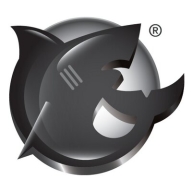

Nasuni and FreeNAS compete in the enterprise file storage category. Nasuni seems to have the upper hand for large enterprises due to its scalability and cloud integration, while FreeNAS is preferred by small to medium-sized implementations for its flexibility and cost-effectiveness.
Features:Nasuni offers a centralized management console, unlimited capacity, and continuous versioning. FreeNAS emphasizes strong integration with Linux or Windows environments, disk management, and container integration.
Room for Improvement:Nasuni could improve in areas like replication speed and monitoring capabilities, and users suggest better mobile access tools. FreeNAS needs enhanced documentation, better clustering features, and improved backup processes.
Ease of Deployment and Customer Service:Nasuni supports hybrid and public cloud environments and is praised for responsive customer service. FreeNAS is user-friendly for on-premises deployment, but relies heavily on community support.
Pricing and ROI:Nasuni has pricing based on data usage per terabyte with annual licensing, advantageous for larger enterprises due to its cloud integration. FreeNAS is open-source with minimal costs, appealing to budget-conscious users with technical expertise.
| Product | Market Share (%) |
|---|---|
| Nasuni | 3.9% |
| FreeNAS | 2.7% |
| Other | 93.4% |

| Company Size | Count |
|---|---|
| Small Business | 7 |
| Large Enterprise | 2 |
| Company Size | Count |
|---|---|
| Small Business | 3 |
| Midsize Enterprise | 8 |
| Large Enterprise | 24 |
Nasuni is a file data services enterprise focused on assisting firms with their digital transformation, global expansion, and information awareness. The Nasuni File Data Platform is a suite of cloud-based services designed to enhance user productivity, ensure business continuity, provide data intelligence, offer cloud options, and simplify global infrastructure. This platform and its auxiliary services are projected to replace conventional file infrastructure such as network attached storage (NAS), backup, and Disaster Recovery (DR), with an expandable cloud-scale solution. By storing file data in scalable cloud object storage from multiple providers, Nasuni positions itself as a cloud-native alternative for traditional NAS and file server infrastructure. Based in Boston, Massachusetts, USA, Nasuni serves sectors like manufacturing, construction, technology, oil and gas, financial services, and public sector worldwide, offering its services in more than 70 countries.
James J., IT Manager at a marketing services firm, says Nasuni’s management dashboard is helpful because he's able to view all of the different filers at once rather than check each one of them individually. He values the software’s security, reliability, good performance, helpful alerting, and responsive support.
According to a Server Engineering Services Lead at a mining and metals company, Nasuni offers good OR and DR capabilities, performs well, offers data security, and continuous file versioning helps recover from hardware failures.
The Managing Director of IT at a construction company appreciates Nasuni because it eliminates a lot of work that was previously done when managing backing up and restoring data files.
We monitor all NAS reviews to prevent fraudulent reviews and keep review quality high. We do not post reviews by company employees or direct competitors. We validate each review for authenticity via cross-reference with LinkedIn, and personal follow-up with the reviewer when necessary.